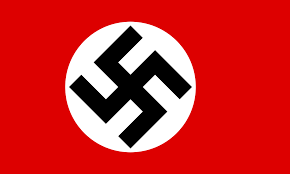The Nazy Power – History Notes – For W.B.C.S. Examination.
নাৎজি শক্তি – ইতিহাস নোট – WBCS পরীক্ষার এর জন্য পরীক্ষা।
Nazi Party, byname of National Socialist German Workers’ Party, German Nationalsozialistische Deutsche Arbeiterpartei (NSDAP), political party of the mass movement known as National Socialism. Under the leadership of Adolf Hitler, the party came to power in Germany in 1933 and governed by totalitarian methods until 1945.Continue Reading The Nazy Power – History Notes – For W.B.C.S. Examination.
It was founded as the German Workers’ Party by Anton Drexler, a Munich locksmith, in 1919. Hitler attended one of its meetings that year, and before long his energy and oratorical skills would enable him to take over the party, which was renamed National Socialist German Workers’ Party in 1920. That year Hitler also formulated a 25-point program that became the permanent basis for the party. The program called for German abandonment of the Treaty of Versailles and for the expansion of German territory. These appeals for national aggrandizement were accompanied by a strident anti-Semitic rhetoric. The party’s socialist orientation was basically a demagogic gambit designed to attract support from the working class. By 1921 Hitler had ousted the party’s other leaders and taken over.
Under Hitler the Nazi Party grew steadily in its home base of Bavaria. It organized strong-arm groups to protect its rallies and meetings. These groups drew their members from war veterans groups and paramilitary organizations and were organized under the name Sturmabteilung (SA). In 1923 Hitler and his followers felt strong enough to stage the Beer Hall Putsch, an unsuccessful attempt to take control of the Bavarian state government in the hope that it would trigger a nationwide insurrection against the Weimar Republic. The coup failed, the Nazi Party was temporarily banned, and Hitler was sent to prison for most of 1924.Upon his release Hitler quickly set about rebuilding his moribund party, vowing to achieve power only through legal political means thereafter. The Nazi Party’s membership grew from 25,000 in 1925 to about 180,000 in 1929. Its organizational system of gauleiters (“district leaders”) spread through Germany at this time, and the party began contesting municipal, state, and federal elections with increasing frequency.However, it was the effects of the Great Depression in Germany that brought the Nazi Party to its first real nationwide importance. The rapid rise in unemployment in 1929–30 provided millions of jobless and dissatisfied voters whom the Nazi Party exploited to its advantage. From 1929 to 1932 the party vastly increased its membership and voting strength; its vote in elections to the Reichstag (the German Parliament) increased from 800,000 votes in 1928 to about 14,000,000 votes in July 1932, and it thus emerged as the largest voting bloc in the Reichstag, with 230 members (38 percent of the total vote). By then big-business circles had begun to finance the Nazi electoral campaigns, and swelling bands of SA toughs increasingly dominated the street fighting with the communists that accompanied such campaigns.
When unemployment began to drop in Germany in late 1932, the Nazi Party’s vote also dropped, to about 12,000,000 (33 percent of the vote) in the November 1932 elections. Nevertheless, Hitler’s shrewd maneuvering behind the scenes prompted the president of the German republic, Paul von Hindenburg, to name him chancellor on January 30, 1933. Hitler used the powers of his office to solidify the Nazis’ position in the government during the following months. The elections of March 5, 1933—precipitated by the burning of the Reichstag building only days earlier—gave the Nazi Party 44 percent of the votes, and further unscrupulous tactics on Hitler’s part turned the voting balance in the Reichstag in the Nazis’ favour. On March 23, 1933, the Reichstag passed the Enabling Act, which “enabled” Hitler’s government to issue decrees independently of the Reichstag and the presidency; Hitler in effect assumed dictatorial powers.
For Guidance of WBCS (Exe.) Etc. Preliminary , Main Exam and Interview, Study Mat, Mock Test, Guided by WBCS Gr A Officers , Online and Classroom, Call 9674493673, or mail us at – mailus@wbcsmadeeasy.in
Visit our you tube channel WBCSMadeEasy™ You tube Channel
Please subscribe here to get all future updates on this post/page/category/website



 Toll Free 1800 572 9282
Toll Free 1800 572 9282  mailus@wbcsmadeeasy.in
mailus@wbcsmadeeasy.in


















































































































